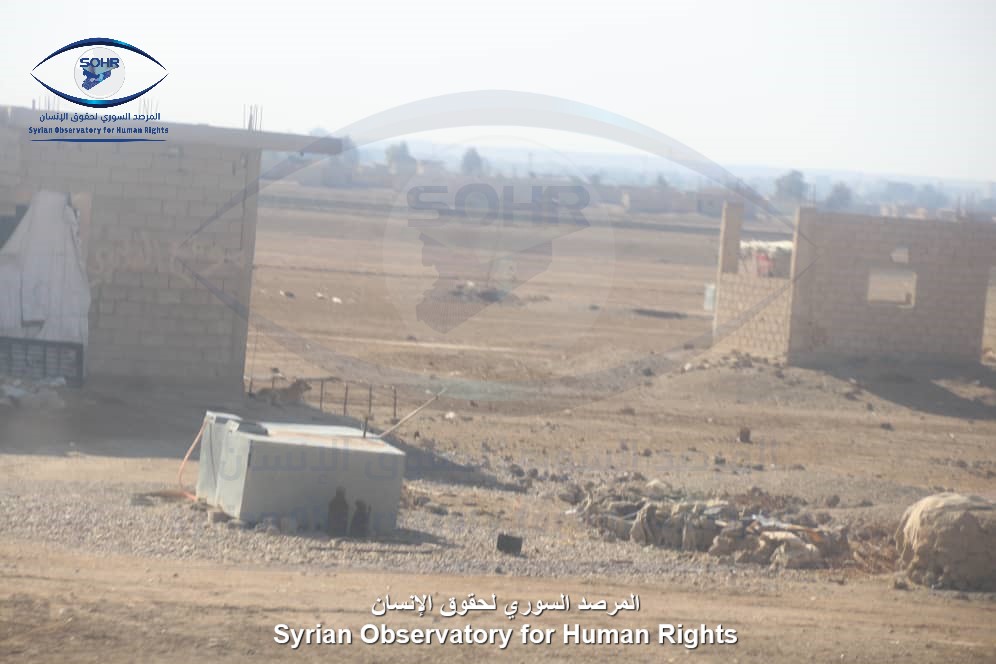Stifling water crisis four years on | Regime forces and Iranian-backed militias deprive 3,000 people in Deir Ezzor of water
Nearly 3,000 civilians and displaced persons in the western countryside of Deir Ezzor are struggling with a stifling crisis due to the scarcity of water for drinking and irrigation, after the theft of water pumps and engines by regime forces and their backed militias in Al-Husseinieh village. These engines were used for pumping water to several villages, such as the villages of Al-Jalamada and Al-Shahabat.
Local sources have told the Syrian Observatory that the water has been cut off as Iranian-backed militias and Lebanese Hezbollah have held sway over the paper plant in Al-Husseinieh village, where the main water stations that were pumping water from Euphrates River to the lift stations in the paper plant.
After the Lebanese Hezbollah control of the paper plant, the water pipelines linking the plant with “grain silos” in SDF-control areas in east Euphrates region were cut off.
The sources have confirmed that there is no clean drinking water in this village which is about 15 kilometres away from the nearest source of water. Meanwhile, the owners of water trucks are facing challenges to transport water from the river.
Therefore, transportation fees and price of water have risen. It is worth noting that the price of a single tank of water has reached 5,000 Syrian pounds, and this price is unaffordable by many families in light of the dire living conditions in the region. However, some families are forced to buy water which has made them shoulder extra burdens.
A teacher at a school in Al-Shahabat village known by his initials as M. A. told SOHR “since regime forces and their proxy militias took control of Al-Husayniyah village four years ago, residents have been forced to buy water at high prices, although this water is not purified. Farmers, however, are unable to cultivate their land for nearly four years because of the lack of water.
Moreover, a former head of an agricultural association told the Syrian Observatory “the amount of agricultural land that was irrigated via the association’s pumps stolen by Iranian-backed militias, ranging from 280 to 300 hectares which had been grown with wheat, cotton and vegetables.”









